Why Testosterone Matters More Than You Think
Low energy. Stubborn fat. Brain fog. Low drive. Mood swings. These aren’t just “getting older” — they’re often low testosterone waving a red flag.
Here’s the problem: mainstream medicine’s solution is usually TRT (testosterone replacement therapy). But that’s not fixing the root cause — it’s just slapping on a patch. And once you’re on TRT, you’re usually on it for life.
The truth? Your body already knows how to make testosterone. You just have to stop suppressing it and give it the right environment to thrive.

This post contains affiliate links. I may earn a small commission if you purchase through them — at no extra cost to you.
What Kills Testosterone in Modern Life
- Seed Oils & Ultra-Processed Food → drive inflammation and wreck hormone signaling.
- Chronic Stress (Cortisol Chaos) → cortisol and testosterone compete — cortisol always wins.
- Poor Sleep → most testosterone is made during deep sleep.
- Obesity / Insulin Resistance → excess body fat converts testosterone into estrogen.
- Endocrine Disruptors → plastics, parabens, pesticides mimic estrogen and crash your T.
Natural Ways to Boost Testosterone Without TRT
1. Fix Your Diet (Ditch Seed Oils, Go Ancestral)
- Prioritize grass-fed beef, pastured eggs, organ meats, wild-caught fish.
- Cook with tallow, ghee, lard, butter, coconut oil — protect cell membranes and hormone function.
- Cut processed carbs and seed oils — the #1 testosterone saboteurs.
2. Optimize Sleep (Your #1 Testosterone Hack)
- Testosterone is released in pulses during deep sleep.
- Even one week of 5-hour nights can drop T levels by 10–15%.
- Action step: blackout curtains, no screens 90 min before bed, cold dark room.
3. Train Like an Ancestor
- Lift heavy weights → compound lifts like squats, deadlifts, presses.
- Sprint occasionally → boosts growth hormone and testosterone.
- Avoid chronic cardio — it spikes cortisol and lowers T.
4. Manage Stress (Control Cortisol Chaos)
- Daily breathwork, meditation, or sunlight walks reduce cortisol load.
- Cold exposure → short-term stressor that actually builds long-term resilience.
- Colostrum & magnesium → support the stress/adrenal system.
5. Get More Sunlight & Vitamin D
- Vitamin D = a hormone precursor, not just a vitamin.
- Low D levels are strongly linked to low testosterone.
- Aim for 20–30 min sun daily or supplement with D3 + K2.
6. Mineral Power (Magnesium, Zinc, Boron)
- Zinc → essential for testosterone production and sperm quality.
- Magnesium → calms the nervous system, lowers cortisol, frees up more bioavailable testosterone.
- Boron → underrated mineral that can raise free testosterone levels.
A great blend of these minerals I use everyday: Trace Minerals Concentrace Drops
7. Lower Your Toxin Load
- Ditch plastics (BPA, phthalates mimic estrogen).
- Use stainless steel or cast iron pans instead of nonstick.
- Choose organic meats and veggies when possible to avoid pesticide endocrine disruptors.
8. Body Fat & Insulin Sensitivity
- Excess visceral fat = testosterone converted into estrogen via aromatase.
- Intermittent fasting, Paleo diet, and strength training all restore insulin sensitivity and testosterone production.
The Bottom Line
You don’t need TRT to feel strong, sharp, and alive again. What you need is to remove the modern hormone disruptors and re-align with the way your body was designed to function.
When you fix sleep, stress, nutrition, and toxic load — your testosterone comes back online naturally. That’s not a “hack” — that’s biology.
Sources
- Tsigos, C., & Chrousos, G. P. (2002). Hypothalamic–pituitary–adrenal axis, neuroendocrine factors and stress. Journal of Psychosomatic Research, 53(4), 865–871.
- Chen, H., et al. (2022). Chronic stress inhibits testosterone synthesis in Leydig cells through mitochondrial damage in male rats. Frontiers in Endocrinology, 12, 804174.
- Tenover, J. S. (1997). Effects of testosterone supplementation in the aging male. Journal of Clinical Endocrinology & Metabolism, 82(3), 1012–1015.
- Cinar, V., et al. (2011). Effects of magnesium supplementation on testosterone levels of athletes. Biological Trace Element Research, 140(1), 18–23.
- Ramlau-Hansen, C. H., et al. (2010). Vitamin D and male reproductive function. Nature Reviews Endocrinology, 6(9), 541–549.

Leave a Reply